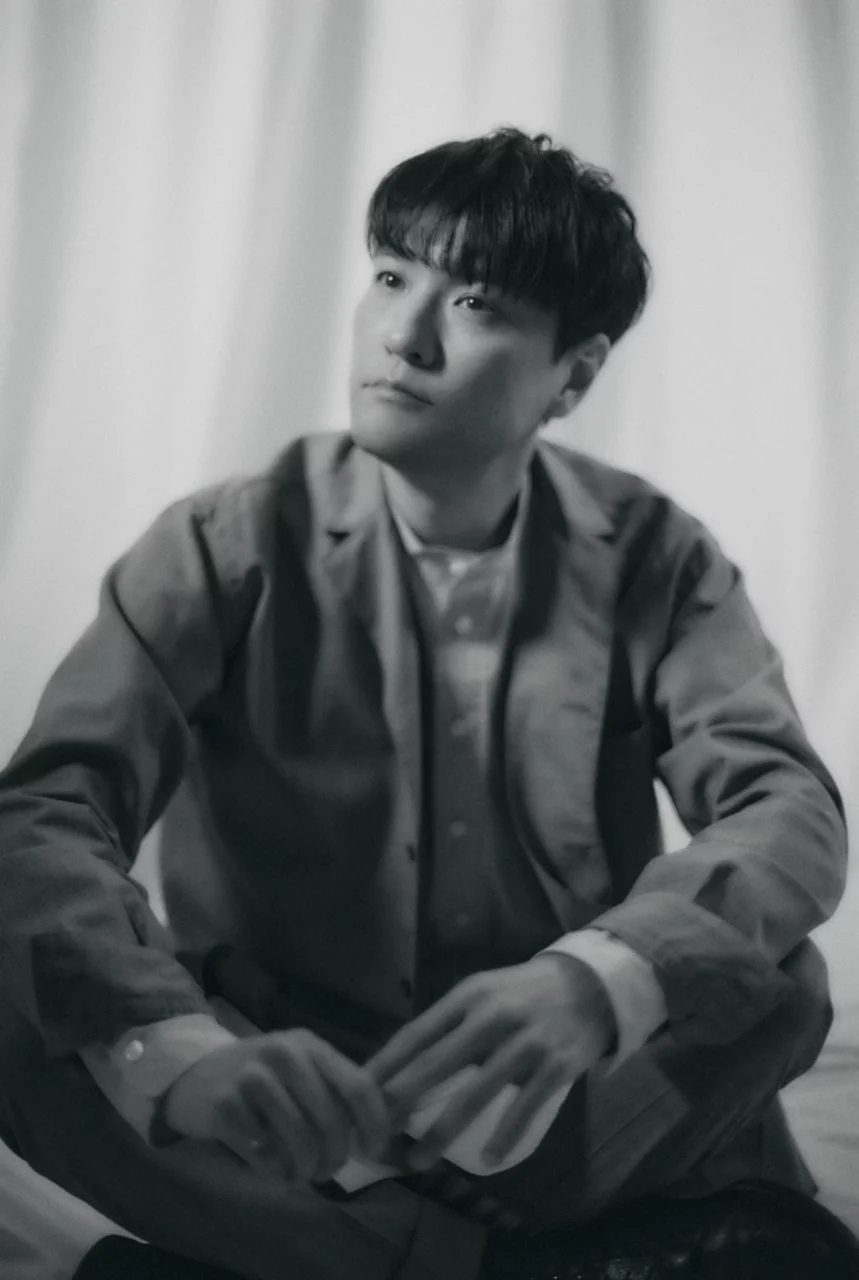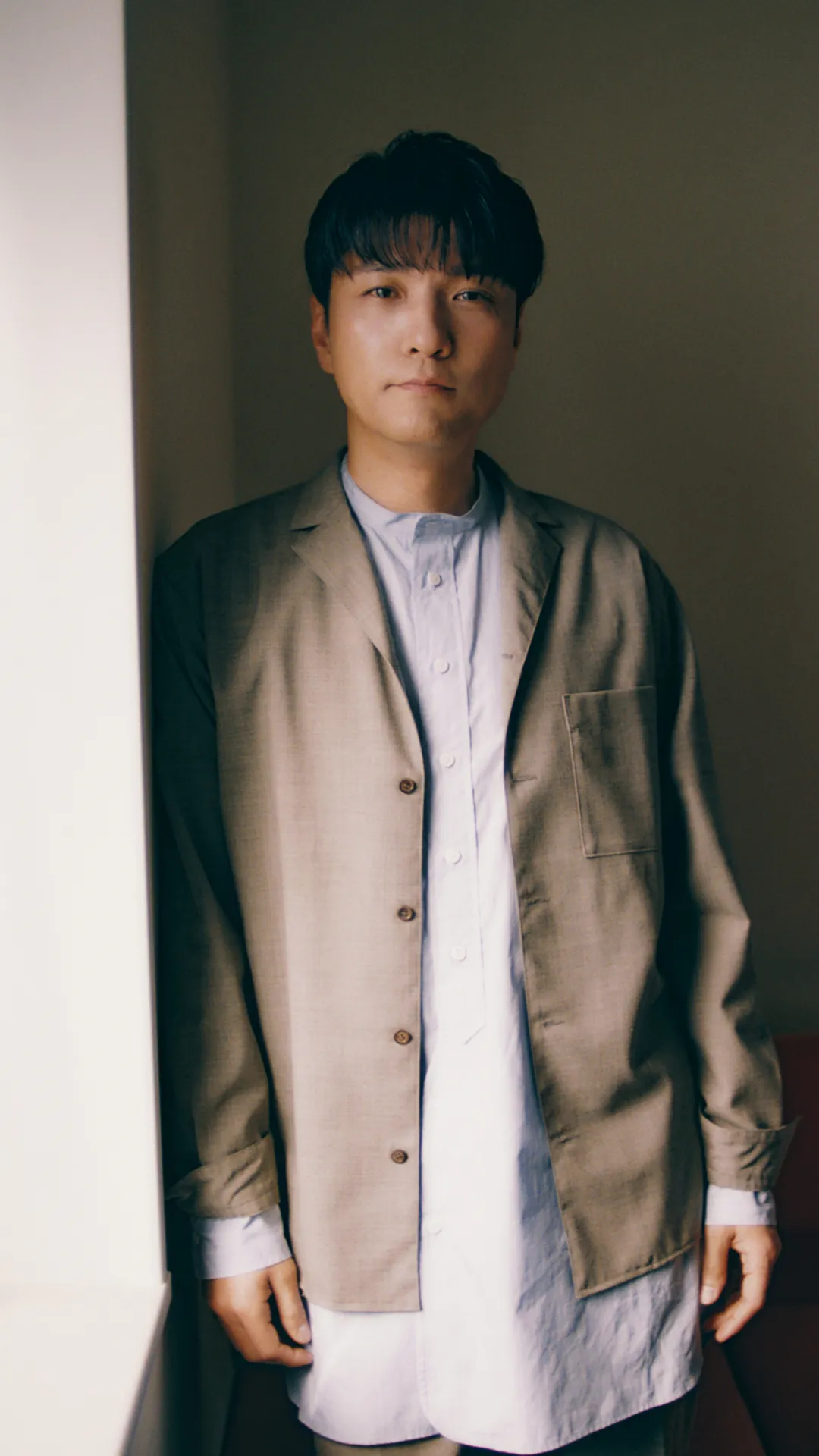The bond between a person and their parents is a fundamental part of shaping who they are, yet it remains deeply personal, making it nearly impossible to compare with others. When an artist delves into their relationship with their parents through their work, it becomes a form of therapy—an intimate exploration that not only deepens their self-awareness but also resonates with the audience, prompting them to reflect on their own familial connections.
Naotaro Moriyama’s final domestic performance of his two-year tour at Ryogoku Kokugikan, along with the film Where is This Wonderful World?, which poignantly captures his relationship with his late father, embody the essence of this process. Avoiding conversations about his father since his parents’ divorce in childhood, Moriyama’s journey over the past few years led him to rediscover his feelings of love and sorrow. As he confronted his father’s death, his music evolved, revealing a profound shift in how he perceives the world—an evolution captured in tracks like “papa” and the new song “New World,” which he describes as a creation his father “made him write.” This journey wasn’t just about confronting his father, but about embracing the truth that, through this exploration, he is now more alive than ever.
INDEX
Overcoming the Fear of Solo Performances: How the Tour Transformed His Approach to Singing
The song ‘papa’ from the album ‘Wonderful World’ was personally very impactful for me. At a time when I was reflecting on what it means to become a parent, your song about facing your father really resonated with me. When I watched the movie, which also depicted your relationship with your father, I had a similar feeling to when I first heard ‘papa.’ Reflecting on this, what was this tour like for you, Moriyama?
Moriyama: This tour included 107 shows across the country, but for me, sticking to the same thing over and over is just not possible. So, I divided the tour into three parts: solo acoustic, bluegrass, and full band. I often create songs with just my guitar, so playing solo is my foundation. However, in the past 20 years, I didn’t often think about doing a live solo performance. The idea of getting on stage alone and singing my songs felt like exposing my identity, and that was scary.
In the past, your performances have often involved a band, right?
Moriyama: I took that approach because there were more options available, so it felt like the right choice. But this time, being able to return to performing the songs I made solo, in a solo acoustic style, was really significant. For the first three songs of the setlist—’Ikiteru koto ga tsurai nara’ a cappella, ‘Aoi hitomi no koibito-san’ solo, and ‘Rakuda no rappa’—the sense of distance and timing has changed so much compared to 10 years ago. In the past, there was a switch for me when I sang, but now, I feel like there is no clear boundary between when I start singing and before I begin.
After 20 years of not performing solo, what made you decide to take the leap?
Moriyama: A few years before I started this tour, something happened that made me take a long, hard look at my career. For the first time in over 15 years, I realized that, in the end, I am the only one who can take full responsibility for my life and my work. Up until then, even though it was my own career, I never fully treated it as my own responsibility. I was probably afraid of getting hurt, but I reached a point where I realized that I couldn’t keep going like this. It wasn’t enjoyable anymore, so I decided to take a chance with a solo acoustic style. Even if it didn’t work out, I felt like I could always rethink things from there, and that was a big shift for me.

Born on April 23, 1976, in Tokyo, is a celebrated folk singer whose music and distinctive voice have earned him a loyal following across generations. Making his major debut in 2002 with the mini album Kawaita Uta wa Sakana no Esa ni Choudo Ii (The Dry Song is Just Right for Fish Food), Moriyama quickly established himself as a unique artist with a sound all his own. Beyond his musical career, he has also made his mark as an actor, captivating audiences with his performances in NHK’s Kokoro no Kizu o Iyasu to Iu Koto and Yell. His versatility continues to shine as he gears up for his role in the upcoming film Natsu no Suna no Ue, set to hit theaters on July 4. With each new endeavor, Moriyama’s artistry expands, resonating with fans far and wide.
How was the experience when you actually tried it?
Moriyama: I would say there were more positives than negatives. If I had to mention something negative, it’s that I’m not the best at playing the guitar, and when I’m on stage by myself, whether it’s during a song or while tuning, I tend to fill the space with something. But I also thought, “Well, that’s just who I am at this moment,” and it became a daily discovery. Gradually, I got used to it, and I started to feel that the rough sketch of a solo performance felt the most freeing.
So it was more about the style than the sound?
Moriyama: Yes, there’s a sense of reassurance. I don’t have to match anyone else’s rhythm. For example, if I make a mistake, I can just start over. There are fewer physical and sensory limitations, and I think that’s what I enjoy.
Were there any songs that became easier to sing?
Moriyama: Songs like “papa” and “Aishi Kimi e” are ones where it’s important to have myself at the center, so they were easier to perform. Especially in the performance at Ryogoku Kokugikan, we had a small ensemble with cello, piano, fiddle, guitar, and banjo, and it was a center-stage setup. It felt like a kind of silent communication, almost like a breathing rhythm. Every time we played the same song, it felt like a different version due to the subtle interactions between us.

























